Nikah: The Islamic Marriage Ceremony of Nikah in Pakistan
Nikah-An Introduction to the Islamic Marriage Ceremony
Nikah, an integral aspect of Islamic culture, refers to the formal marriage ceremony that holds great significance within the Islamic faith. In Islam, marriage is not merely a social contract but a sacred bond deeply rooted in the teachings of the Quran and the Sunnah. The act of Nikah is regarded as a virtuous endeavor, essential for leading a fulfilling and harmonious life while fulfilling one’s religious obligations.
Thoughtful Nikah: Building a Foundation for Partnership and Commitment
The Nikah ceremony establishes a formal contract between a man and a woman, setting the groundwork for their life together. This contract is often acknowledged as a mutual agreement that involves specific responsibilities and rights toward one another, thereby fostering a sense of partnership. The exclusivity and commitment of Nikah deepen the emotional and spiritual connection between spouses, which is essential in building a family structure aligned with Islamic values.

Nikah: Strengthening Marital Bonds for Family and Community Harmony
Marriage in Islam is about emotional and physical unity and encompasses a broader concept of family and community. Through the institution of Nikah, individuals are encouraged to fulfill their roles as responsible members of society. This institution promotes cooperative relationships based on trust and mutual respect, exemplifying how marital bonds can contribute positively to the wider community.
The Cultural Diversity and Sacred Essence of Nikah in Islamic Traditions
Furthermore, the Nikah ceremony is typically accompanied by certain rituals and traditions that vary across different cultures, reinforcing that while the essence of the Nikah remains uniform, its expression can be rich and diverse. Regardless of cultural nuances, the core principle remains the same: Nikah emphasizes the sacredness of marital union and its vital role in the life of Muslims, underscoring the importance of forming strong familial relationships within an Islamic framework.
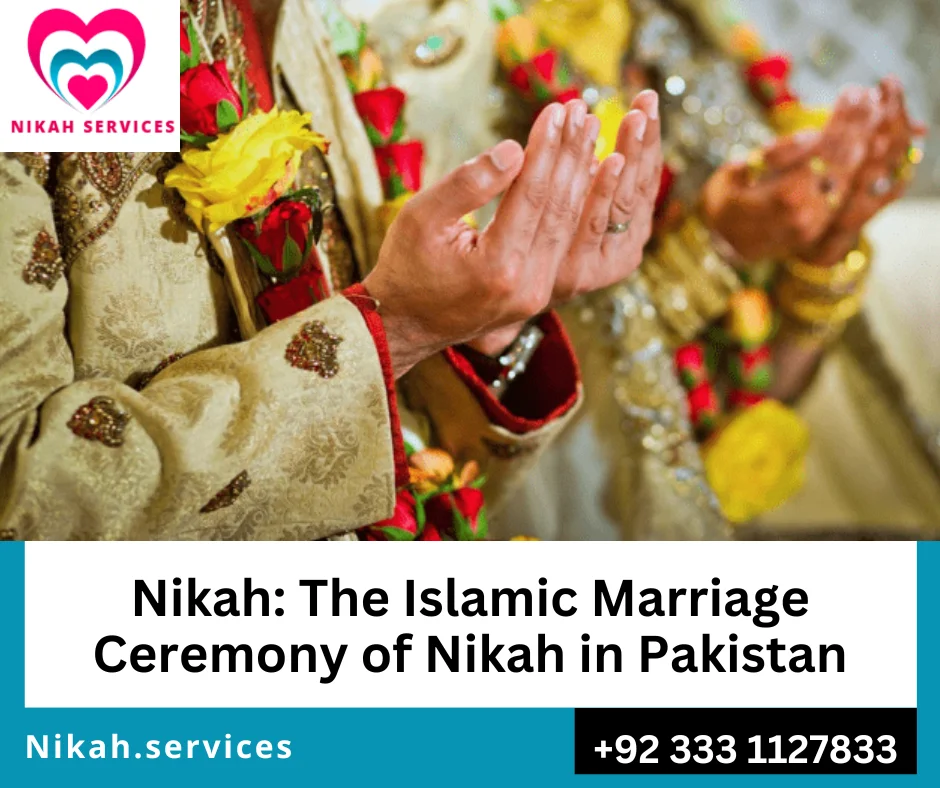
Nikah: A Sacred Covenant Rooted in Islamic Principles of Love and Responsibility
Nikah, the Islamic marriage ceremony, represents not only a union between two individuals but also embodies the core principles of Islam that govern the institution of marriage. Central to the practice of Nikah are principles of mutual respect, love, and responsibility, with the intent of fostering a harmonious relationship between husband and wife. In Islam, marriage is not merely a social contract; it is viewed as a sacred covenant ordained by Allah, and it holds profound implications for both partners’ moral and ethical conduct.
Nikah: Upholding Consent and Mutual Respect Through Ijab and Qabool
One of the fundamental principles guiding Nikah is the concept of consent. Both parties must voluntarily agree to the marriage, ensuring it is based on mutual willingness and respect. In addition, the importance of a formal proposal and acceptance, known as “Ijab” and “Qabool,” is emphasized within Islamic jurisprudence. This adherence to consent reflects Nikah’s ethical underpinnings, where both partners are encouraged to engage in open dialogue and mutual understanding before proceeding with the marriage.
Nikah: A Balanced Framework of Rights, Duties, and Companionship
Furthermore, Nikah establishes a framework for the rights and duties of spouses. For instance, the husband is responsible for providing for the family, while the wife is encouraged to manage the household. However, both partners are urged to support each other emotionally and spiritually, emphasizing the importance of companionship and cooperation. The teachings of Islam advocate communication and empathy, which help nurture the relationship and address challenges that may arise during the marriage.
Nikah: Fostering Commitment and Stability in Marital Life
Additionally, Nikah highlights the concept of permanence in marriage. The Islamic view of marriage encourages commitment and stability, promoting family as the cornerstone of society. In recognizing the sanctity of this union, Islam provides guidelines to ensure that couples nurture their relationships, fostering a loving and supportive family environment. Understanding these principles is key to forming a resilient and fulfilling partnership through Nikah.
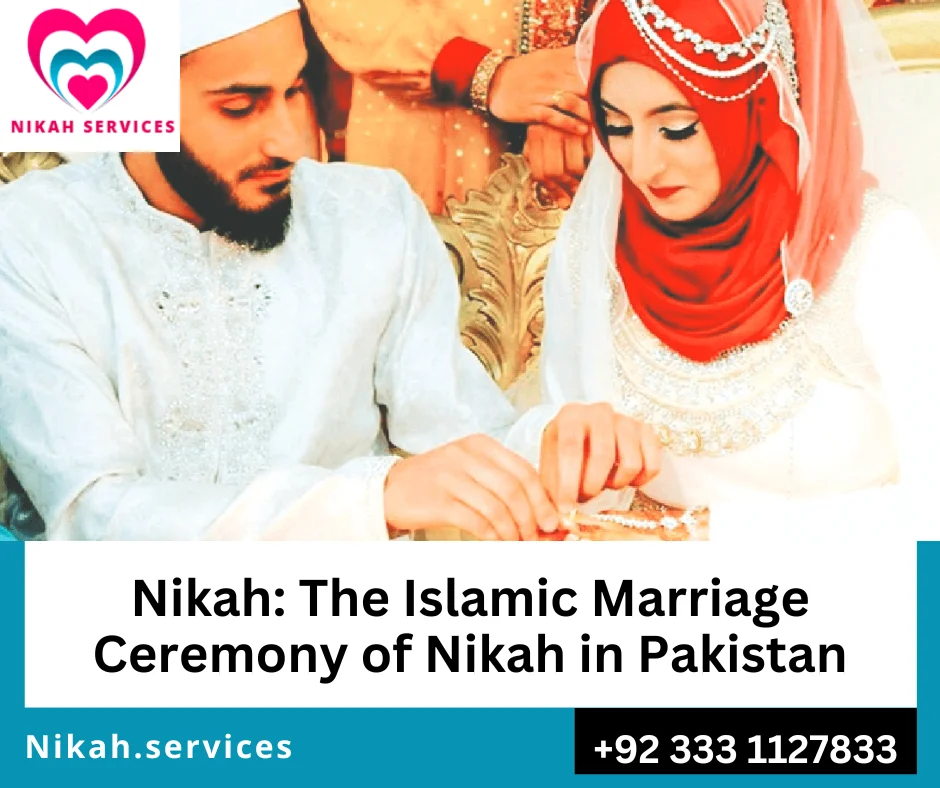
Nikah: Ensuring Mutual Consent as a Cornerstone of Islamic Marriage
The concept of consent in Nikah is fundamental within Islamic teachings. Both the bride and groom must express their willingness and agreement to enter into this sacred bond. The necessity of mutual consent is primarily derived from various verses in the Quran and the Hadith, underscoring that an Islamic marriage ceremony, or Nikah, cannot be valid without the clear consent of both parties. This principle ensures that both individuals are entering into a relationship based on free will rather than coercion.
Nikah: The Quranic Emphasis on Consent and Compassion in Marriage
In the Quran, multiple verses emphasize the importance of consent in the context of marriage. For instance, Surah An-Nisa (4:19) explicitly instructs believers to treat women with kindness and to ensure their consent is obtained when entering into marriage. This directive illustrates that the emotional and psychological well-being of both the bride and groom is paramount, making their personal choice a critical element of the Nikah process.
Nikah: Prophetic Teachings on Consent as a Pillar of Islamic Marriage
Furthermore, the teachings of the Prophet Muhammad (peace be upon him) reinforce this necessity. It is reported in Hadith that he stated, “A woman should not be married until she is asked for her consent.” This highlights the importance of allowing the bride to voice her agreement, emphasizing that without her approval, the Nikah cannot be deemed valid. The emphasis on consent in Nikah not only promotes a respectful and equitable foundation for marriage but also aligns with the broader principles of justice and compassion that are intrinsic to Islam.
Nikah: Building a Foundation of Equality, Respect, and Mutual Consent in Marriage
Ultimately, the role of consent in Nikah signifies that both parties are not just participants but equal partners, ensuring that their marriage begins on a foundation of mutual respect and understanding. This understanding fosters a stronger partnership as they embark on their journey together as husband and wife.
The Nikah Ceremony: Rituals and Customs
The Nikah ceremony is a significant event in the lives of Muslim individuals, representing a sacred contract between two parties. This Islamic marriage ceremony, known as Nikah in Islam, is replete with various rituals and customs that vary across cultures but share common threads that emphasize the sanctity of the union. The ceremony typically involves an officiant, usually an Imam, who leads the proceedings and ensures that all Islamic guidelines are adhered to during the process.
Nikah: The Significance of Khutbah and Mahr in Islamic Marriage Rituals
One of the fundamental rituals during the Nikah is the reading of the Khutbah, which is a sermon that conveys the importance of marriage in Islam and outlines the responsibilities of both partners. The Khutbah serves as a reminder of the ethical and moral duties that each spouse must uphold in the relationship. Following this is the actual contract signing, where the groom presents a Mahr, or dowry, to the bride, symbolizing his commitment to her. The Mahr can vary in amount and is agreed upon before the ceremony, reflecting the groom’s financial capability and the bride’s preferences.
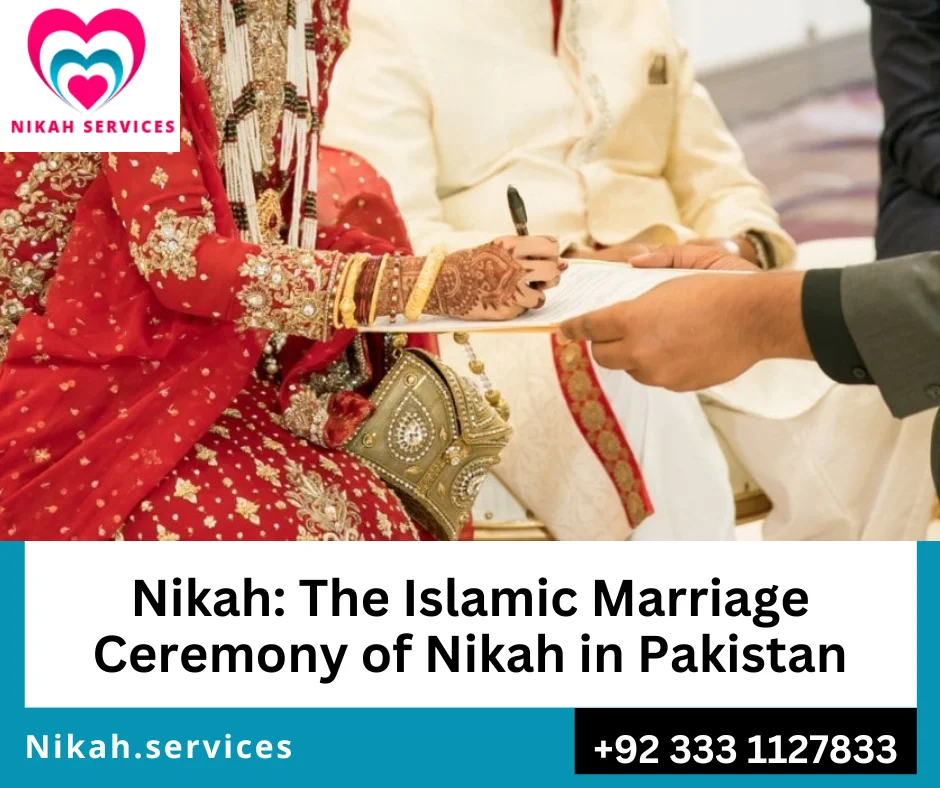
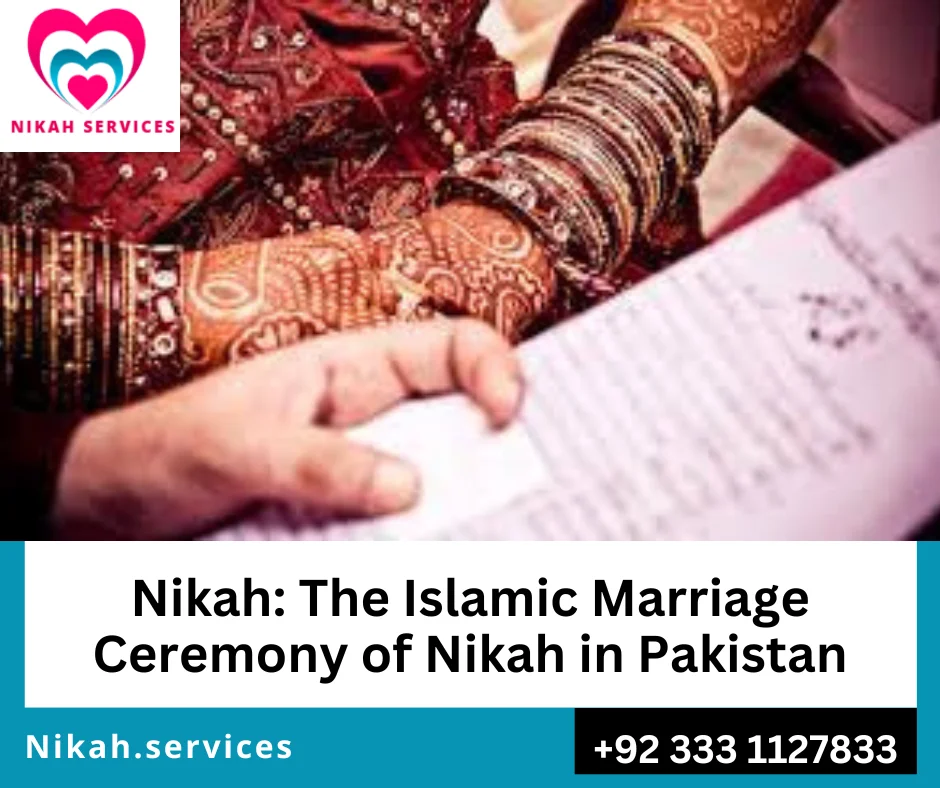
Nikah: The Essential Role of Witnesses in Validating the Marriage Contract
Witnesses play a crucial role in the Nikah ceremony. According to Islamic teachings, the presence of at least two witnesses is required to validate the marriage contract. These individuals, often close family or friends, attest to the authenticity of the agreement, ensuring that it is entered into willingly and without coercion. Their role is central, as it underscores the communal aspect of marriage in Islam, where the family and community are involved in the individuals’ commitment to each other.
Celebrating the Nikah: Cultural Rituals and Festivities that Reflect Love and Commitment
Furthermore, the Nikah ceremony may also include celebratory customs such as music and feasting, reflecting the joy of the union. These practices can differ widely among cultures but always aim to honor the foundational principles of love and commitment embedded in the Nikah. Overall, the rituals surrounding the Nikah ceremony foster a sense of belonging, spirituality, and shared values among the participants.
The Legal and Religious Significance of Nikah: A Dual Framework for Marriage
Nikah, the Islamic marriage ceremony, is not only a religious affair but also has significant legal implications. In many Muslim-majority countries, Nikah is recognized under civil law, establishing a framework for the registration of marriages. The legal documentation of a Nikah includes a marriage contract, which outlines the rights and responsibilities of the spouses involved. This contract is a crucial element that solidifies the marriage in both a religious and legal context, ensuring that both parties are aware of their agreements and obligations.
The Role of Mahr in Nikah: Ensuring Respect, Security, and Legal Protection
One of the key components of the Nikah contract is the Mahr, or dowry, which the groom is required to provide to the bride. This not only represents a token of respect but also serves as financial security for the wife. The specifics surrounding Mahr can vary greatly, depending on cultural practices and the agreement of the couple. Failure to honor the terms of the Nikah contract can lead to legal disputes, particularly in situations involving divorce.
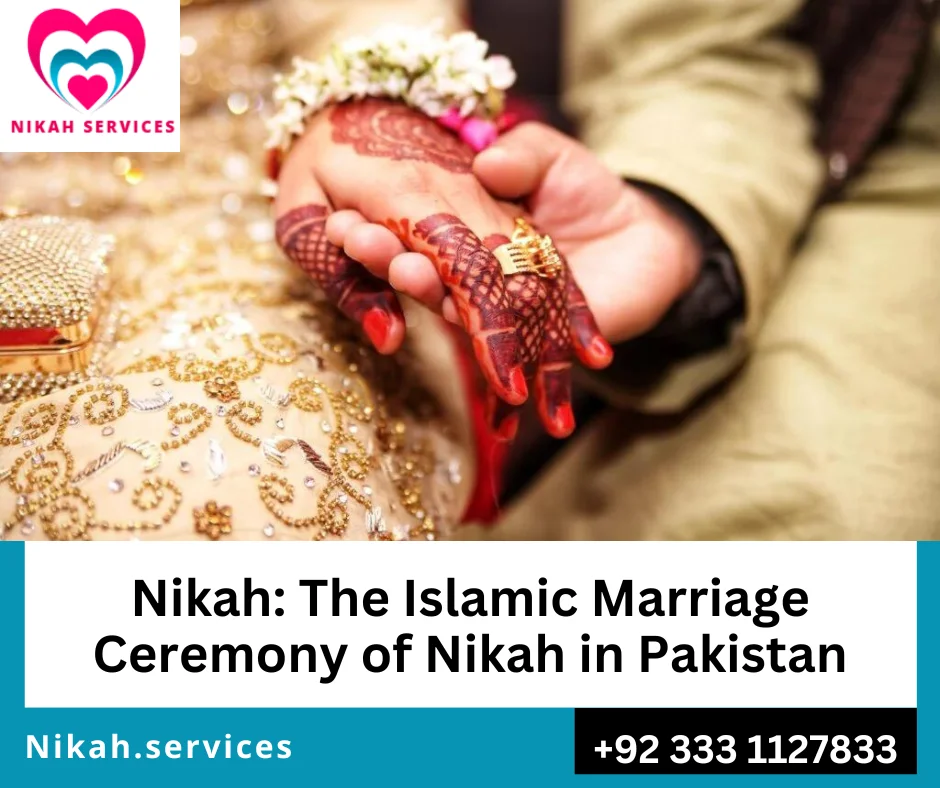

Rights and Responsibilities in Nikah: Understanding Divorce and Legal Mediation
Under Islamic law, the rights and responsibilities of spouses are clearly outlined, shaping expectations for marital conduct. For example, both partners have the right to seek divorce (Talaq), but such actions come with obligations and protocols. The process of divorce is regulated, ensuring a fair and just approach to the termination of marriage. Disputes arising from a Nikah can be mediated, but this often requires adherence to both Islamic and local laws, varying by jurisdiction.
Legal Dimensions of Nikah: Inheritance, Family Law, and the Sanctity of Marriage
Furthermore, the legal recognition of Nikah often extends beyond marriage to issues like inheritance and family law, underscoring its comprehensive nature. The intertwined legal framework of Nikah not only protects individual rights but also reinforces the sanctity of the marriage institution within the broader context of Islamic teachings. In conclusion, understanding these legal aspects is essential for anyone considering or already engaged in a Nikah, highlighting the importance of both the spiritual and legal dimensions of Islamic marriage ceremonies.
Nikah in Different Muslim Cultures and Pakistan
Nikah, the Islamic marriage ceremony, is celebrated with diverse practices across the globe, reflecting regional customs and cultural influences while maintaining the core principles of Islam. This variation illustrates how the concept of Nikah is not only a religious duty but also a significant social event that brings family and community together.
Celebrating Nikah in Turkey: A Fusion of Civil Ceremonies, Tradition, and Family Unity
In countries like Turkey, Nikah is often a formal event marked by a civil ceremony that precedes the religious rites. Couples may dress in elaborate traditional attire, and it is common for multiple days of celebrations to include family gatherings and communal feasts. The emphasis on family honor and unity is a crucial aspect, underscoring the communal nature of Nikah in Turkish society.
Rich Traditions of Nikah in South Asia: Rituals, Celebrations, and Legal Significance
In South Asian nations such as India and Pakistan, the Nikah ceremony is rich in rituals and often spread over several days. The festivities include pre-Nikah events such as the mehndi (henna ceremony), where intricate designs are applied to the bride’s hands and feet. This period is filled with music, dance, and vibrant decorations, which highlight the cultural significance of the occasion. The actual Nikah involves signing the marriage contract, emphasizing the legal and spiritual aspects of the union.
Exploring Nikah in Arab Cultures: The Role of Mahr and the Blend of Tradition and Islam
In contrast, Arab cultures may emphasize the traditional practice of the mahr, a mandatory gift from the groom to the bride, which is an essential part of the Nikah. Celebrations range from extravagant weddings to simpler gatherings, depending on personal and familial preferences. The fusion of Islamic principles with local customs emphasizes the flexibility of the Nikah process while retaining its sacred significance.


Global Celebrations of Nikah: Diverse Traditions and Shared Spiritual Significance
Thus, while the core elements of Nikah remain consistent, the celebration reflects local customs and traditions, showcasing various practices tied to the Islamic marriage ceremony. This diversity allows for different interpretations of Nikah, fostering a sense of identity and belonging among Muslim communities worldwide.
The Role of Family and Community in Nikah
The institution of Nikah, or Islamic marriage, is deeply rooted in the cultural and spiritual fabric of Muslim societies. It is not merely a contract between two individuals, but a significant event that engages families and communities at large. The involvement of family in the Nikah process is essential, as it embodies the principles of unity and support that underpin Islamic values. Families play a crucial role in facilitating the marriage, ensuring that both parties are compatible and meet the requirements outlined in Islamic teachings.
Family and Community in Nikah: Blessings, Support, and Cultural Traditions
During the Nikah ceremony, families often express their blessings and support, which is considered vital for the couple’s future together. The presence of both families highlights the importance of communal ties and mutual respect, reinforcing the belief that marriage is a partnership not just between two individuals, but also among their families. Many families conduct pre-Nikah meetings to discuss matters such as dowries, wedding arrangements, and the expectations of both parties. This involvement ensures that the marriage is celebrated in a manner that honors the cultural traditions and values associated with Nikah.
Community and Celebration in Nikah: Strengthening Bonds and Honoring Sacred Unions
Furthermore, the community plays a significant role in the celebration of Nikah. Islamic marriage ceremonies often involve larger community gatherings, where friends and extended family join to rejoice and support the couple. Such communal involvement strengthens interpersonal bonds and fosters a collaborative spirit, emphasizing the significance of collective happiness. Coming together as a community in celebration further cements the concept of Nikah as a sacred union that is respected and cherished across the broader society.
Overcoming Cultural Differences in Nikah: Navigating Expectations and Challenges
Nikah, or the Islamic marriage ceremony, represents the sacred union between two individuals within the parameters defined by Islamic law. While it is a significant milestone, several challenges and considerations frequently arise before and during the process of Nikah. One of the most prominent issues is cultural differences. Couples from diverse cultural backgrounds may encounter contrasting views on marriage practices, family involvement, and gender roles. Such differences can lead to misunderstandings and require discussions to navigate the expectations of both families and parties involved.
Financial Expectations in Nikah: Navigating Mahr, Budgets, and Future Responsibilities
Another critical aspect that needs to be addressed is financial expectations. In many cultures, the financial responsibilities of the groom and his family are stipulated before the Nikah takes place. This might include the payment of a dowry, known as mahr, which is a mandatory provision stipulated within the context of the union. Couples must discuss budgeting, who will fund the wedding, and ongoing financial responsibilities that come after the Nikah. Transparent communication about these matters can alleviate potential tensions that may arise post-ceremony.
Bridging Generational Gaps in Nikah: Balancing Tradition and Modern Values
Generational perspectives on marriage also play a fundamental role in shaping modern-day Islamic marriages. Older family members often hold traditional views that may differ from those of the younger generation. For instance, while the younger couple may prioritize a partnership based on love and compatibility, their parents might focus on societal status, family reputation, or financial stability. Bridging such generational gaps requires patience and empathy, as it is crucial for couples to honor their heritage while also embracing their values during their Nikah.
Turning Challenges into Opportunities: Building a Strong Foundation for Nikah
Ultimately, these challenges can serve as opportunities for growth. By fostering open dialogue regarding cultural, financial, and generational concerns, individuals can create a solid foundation for their Nikah and ensure a harmonious partnership in their married life.

Sacred Significance of Nikah: Love, Commitment, and Spiritual Responsibility
Nikah holds a prominent place in Islam, embodying the principles of love, commitment, and social responsibility. As an Islamic marriage ceremony, Nikah not only signifies the union of two individuals but also serves as a binding covenant that reinforces familial ties and community bonds. This sacred rite establishes a framework within which couples can cultivate mutual respect, affection, and understanding. The significance of Nikah extends beyond the mere contractual agreement; it is a spiritual journey that commands both partners to uphold the virtues of compassion and justice towards one another.
Guided by Divine Teachings: Fulfilling Rights and Duties in Nikah for a Harmonious Journey
The teachings surrounding Nikah emphasize the importance of fulfilling rights and duties, and fostering an environment of peace and cooperation. By entering into this marriage as per Islamic tenets, couples commit to adhering to divine guidance, which provides them with a moral compass throughout their journey together. These teachings encourage partners to communicate openly, resolve conflicts amicably, and seek personal growth, thereby enriching their lives and the lives of those around them.
Diversity and Spirituality of Nikah: Celebrating Islamic Marriage Across Cultures
Furthermore, the Nikah ceremony itself is often a joyous occasion marked by cultural traditions that vary across different Muslim communities. This diversity highlights the adaptability of Islamic marriage, allowing it to resonate with a wide spectrum of cultural expressions while remaining firmly rooted in the fundamental principles of Islam. Ultimately, understanding Nikah in its holistic context reveals the depth of its significance to Muslims around the world. Muslims need to appreciate the beauty and spirituality inherent in Nikah, as it plays a critical role in fostering healthy relationships and sustaining the values that underpin Muslim societies.

 in Pakistan
in Pakistan